
Bio
"YU grupa was formed in the autumn of 1970 by brothers Dragi and Žika Jelic(guitar and bass guitar), Miodrag Okrugic (organ) and Velibor Bogdanovic (drums). In the beginning the band performed under the name Idejni Posed ("Notional Property"), given by Kornelije Kovac. In November 1970 on their concert in Sinagoga club in Zemun, disc jockey Zoran Modli asked the audience to pik a name for the band. An unknown young man suggested the name YU grupa. Consistening the name, the band continued to hold birthday concerts on November 29, the date of Federal People's Republic of Yugoslavia declaration.
Their first song, "Nona", was recorded at the end of December. The song was inspired by folk music of Kosovo, and recording it YU grupa became one of the pioneers of "Balkan rock" sound. Their first concert was organised by Nikola Karaklajic and Petar Popovic, editors of the Radio Belgrade show Vece uz radio. The concert was held in Dadov theatre on January 21 1971. During the year they held a great number of concerts, mostly in Serbia. They recorded fourteen songs for the needs of Radio Belgrade, part of those songs later released on their vinyl singles. All the copies of their first single "Nona" were sold right after the release, but PGP RTB refused to release new number of copies, so Jugoton became YU grupa's record label. The band performed at the Belgrade spring festival with the song "Tajna", also performed by Zdenka Kovacicek. Songs "Drveni most", "Mali medved" and "Devojka Džoj" were hits on all of their concerts. Okrugic's song "Opus 1" was very significant, but it was not released on any YU grupa album.

The band spent the summer performing at the prestigious club Lanterna in Rovinj. Those concerts brought first conflicts inside the band. After they returned to Belgrade Okrugic left the band. Guitarist Miodrag "Bata" Kostić joined the band. He was previously involved in the band's activity: he wrote some of the songs the band performed. Dragi Jelić and Kostic made an effective guitar duo, and Kostic continued to write folk-inspired hits. In March 1972 the band went on Bulgarian tour, during which they held forty concerts. Thanks to the Vece uz radio show, which had a cult status in Bulgaria, audience knew all of their songs. The others were shocked by their appearance. After they returned to Yugoslavia, they performed at the rock evening of Belgrade spring festival, performing at Dom Sindikata Hall with Korni Grupa, Time and Mladi Levi.
They spent the summer playing in Rovinj's Lanterna. Concerts in Rovinj were crucial once again. After returning to Belgrade Kostic and Bogdanovic left the band. Kostic joined Jutro, and Bogdanovic formed Opus. YU grupa continued as a trio, with Ratislav "Raša" Djelmaš, a former Mobi Dik, Pop Mašina and Siluete member as the new drummer. They spent the next year playing all across Yugoslavia, winning new audience in Slovenia and Croatia. At the time, a keyboard player Tihomir "Pop" Asanovic was invited to become a new member, but he joined Novi Fosili instead. In February 1973 YU grupa went to London to purchase new equipment, and the CBS Records producers, who had an opportunity to hear their recordings earlier, organised their concert in The Marquee. Thanks to the concert the band got the term at a studio, recorded demos, and a serios cooperation with CBS records was planned. The band returned to Yugoslavia to hold a concert at Hala sportova, and holding a high position on Yugoslav rock scene, the band blenched the career in England. In the summer their debut self-titled album YU grupa was released. The album brought numerous hits: blues-oriented "More", "Trka", Cudna šuma", and their cult ballad "Crni leptir". In November Kostic returned to the band.

At the beginning of 1974 YU grupa took part on the recording of Srdjan Marjanovic's debut LP Srdjan Marjanovic i prijatelji, and later released their second studio album Kako to da svaki dan? ("How Come Every Day...?"). The album was musically more diverse, but it did not consist from the numerous hits as the previous one. At the end of the year Dragi Jelic went to the army, and until he returned YU grupa performed as trio. In 1975 best Yugoslav guitarists took part in Kongres rock majstora ("Congress of rock masters") concert. Kostic, Žika Jelic and Djelmaš performed with Vedran Božic, Josip Bocek and Goran Bregovic, and the double album Kongres rock majstora was released.
Dragi returned in June 1975, and Kostic left the band conventionally. The band negotiated with a keyboard player Oliver Mandic, but the cooperation was not agreed. At the beginning of 1976, they released YU grupa III, featuring hits "Oprosti ljubavi", "Novi zvuk" and "Ja moram dalje". In September 1976 a compilation album YU zlato ("YU gold"), which featured their single songs, was released. The same year, Djelmaš left the band and formed Zebra. Dragan Micic replaced Djelmaš, and at the end of 1976 guitarist Nedžat Maculja joined the band. In 1977 they went on the Soviet Union tour, during which they held sixty-four concerts. The same year they released their fourth studio album Medju zvezdama ("Among the Stars"). Album featured Bata Kostic as a guest musician. In 1978 YU grupa performed at the pop oriented festival in Opatija, and their song "Spali svoja secanja" was released on the festival album Opatija 78. At the end 1978 Kostic once again became the member of the band, and a former Mama Co Co and Ribeli member Dragoljub Djuricic (drums) and a former Zdravo member Dragan Jankovic (keyboard) joined YU grupa. This lineup held another Soviet Union tour.
The next album Samo napred... ("Ride on..."), released in 1979, featured hits "Identitet, "Udaj se dobro", "Ideš mi na nerve", "Autobus za raj". Album featured Laza Ristovski, Bebi Dol and Sladjana Miloševic as guest musicians. At the time of New Wave expansion YU grupa's popularity began to decrease. At the end of 1981 their van with a part of the equipement burned down, and Žika Jelic was injured. After this incident YU grupa disbaned. The Jelic brothers started organising concerts, Djuricic became a member of Leb i Sol and Midorag Kostic became a Radio Belgrade editor.
Late 1980s and 1990s
At the end of the 1980s Bijelo Dugme made enormous success with their folk-oriented songs, and the band leader Goran Bregovic suggested the Jelic brothers, the pioneers of Yugoslav folk-rock sound, to reunite YU grupa. Although they occasionally performed during the 1980s, YU grupa officialy reunited in 1987. They released their comeback album Od zlata jabuka ("Golden Apple"), with the tittle track inspired by folk music as the main hit. Album featured keyboard player Saša Lokner as a guest musician. YU grupa performed at the Rock legends concert, alongside Indexi, Drago Mlinarec, Korni Grupa, Time and Radomir Mihajlovic Tocak. Live versions of YU grupa's Cudna šuma", "U tami disko kluba", "Crni leptir" and a medley compiled of "Nona", "Kosovski božuri" and "Sama" were released on the double live album Legende YU Rocka ("Legends of YU Rock"). In November 1988, YU grupa released Ima nade ("There is Hope"). Biggest hits were "Mornar" and power ballad "Dunavom šibaju vetrovi". This album was followed by Tragovi ("Traces"), recorded with Djelmaš on the drums once again, and featuring Pera Joe, Saša Lokner and Nikola Djuturilo as guests.
2000s
In 2005, with Igor Maleševic as the new drummer, YU grupa released its latest studio album with a symbolic title Dugo znamo se ("We Know Each Other for a Long Time"). The album was mostly hard rock-oriented, and did not feature many folk music elements. "Pustinja", "Zamolicu te", "Bože, spasi me" became immediate hits. In 2007 the band released its first official live album Live. In 2008 drummer Slobodan Jurišic; replaced Maleševic.
Discography
Studio albums
• YU grupa (Jugoton 1973)
• Kako to da svaki dan? (Jugoton 1974)
• YU grupa (Jugoton 1975)
• Medju zvezdama (Jugoton 1977)
• Samo napred... (PGP RTB 1979)
• Od zlata jabuka (ZKP RTLJ 1987)
• Ima nade (PGP RTB 1988)
• Tragovi (PGP RTB 1990)
• Rim (PGP RTS 1995)
• Dugo znamo se (PGP RTS 2005)
Live albums
• Legende YU Rocka (Various artists live album, Jugoton 1988)
• Live (PGP RTS 2007)
Compilation albums
• YU zlato (Jugoton 1976)
LINKS:
YU grupa - Kako to da svaki dan? (1974)
h!!p://www.megaupload.com/?d=UP9C764W
Yu grupa - YU grupa (1973)
h!!p://www.megaupload.com/?d=4N6DZ31X
VINYL RIP FROM BRAND NEW LP`s (NO CLIKS, POPS & OTHER SH.T)
FLAC (separate) - SCANS



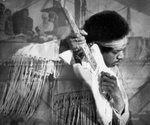
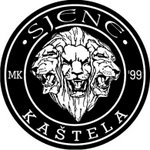
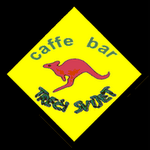
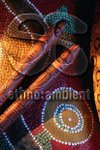
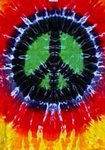

1 comment:
Hello
Good Stuff.Many Thanks+Greatings
andre88
Post a Comment